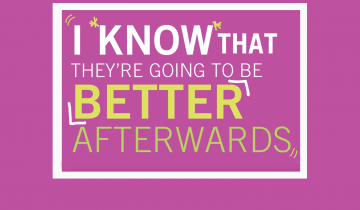We studied how common pain was thought to be due to muscle spasticity in the legs or arms is in children/adolescents with CP.
This webinar is with Ketrina Hazell, Ms. Wheelchair 2018, a young woman with cerebral palsy and Debbie Fink, Vice President of Education and Inclusion at the Cerebral Palsy Foundation, overseeing its flagship “Just Say Hi” program. This webinar is about Ketrina's lived experience in the school system and community and what worked or didn't work as she was growing up.
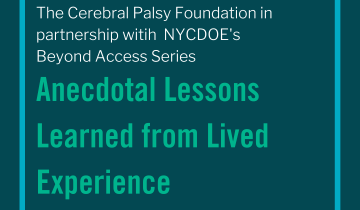
This webinar with Rachel Byrne, Ashley Harris Whaley and Debbie Fink, focusses on the shifting attitudes towards disabled individuals and authentic representation in media, social media and more.
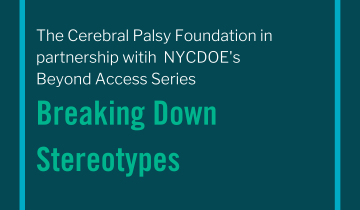
This webinar with Rachel Byrne, Executive Director of CPF, Ashley Harris Whaley, Director of Communities and Engagement at CPF and individual with with CP, and Debbie Fink, Vice President of Education and Inclusion at the Cerebral Palsy Foundation, overseeing its flagship “Just Say Hi” program, focusses on concepts and definitions addressing disability and how language has evolved.
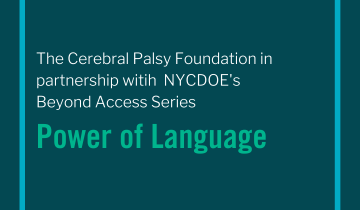
This webinar, with Ashley Harris Whaley, Director of Communities and Engagement, Rachel Byrne, Executive Director of CPF, and Debbie Fink, Vice President of Education and Inclusion at the Cerebral Palsy Foundation, overseeing its flagship “Just Say Hi” program, focusses on the terms "ableism" and "allyship" and ways to facilitate making connections in the schools and communities.
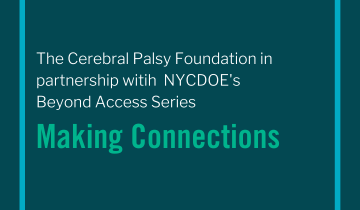
This webinar with Rachel Byrne, Executive Director of Cerebral Palsy Foundation, Ashley Harris Whaley, Director of Communities and Engagement, and Debbie Fink, Vice President of Education and Inclusion at the Cerebral Palsy Foundation, overseeing its flagship “Just Say Hi” program.This video series is a partnership with the New York City Department of Education and the Cerebral Palsy Foundation "Just Say Hi" Disability Education Curriculum. This series is meant to educate and empower parents of students with diverse needs.
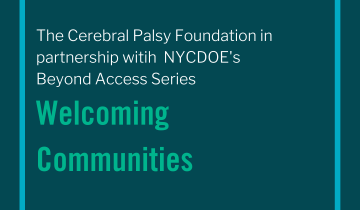
This webinar with Jennifer Lyman, Content Manager for CP Resource and parent of a teen son with with CP, and Debbie Fink, Vice President of Education and Inclusion at the Cerebral Palsy Foundation, overseeing its flagship “Just Say Hi” program. This webinar aims to help parents adapt and support academic success and participation at school and in the community.
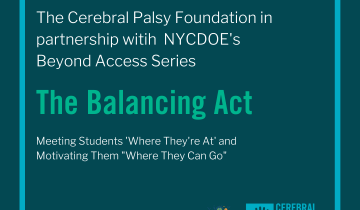
This webinar with Ashley Harris Whaley, Director of Communities and Engagement, Rachel Byrne, Executive Director of CPF, and Debbie Fink, Vice President of Education and Inclusion at the Cerebral Palsy Foundation, overseeing its flagship “Just Say Hi” program. It It aims to provide an overview of disability history and laws.
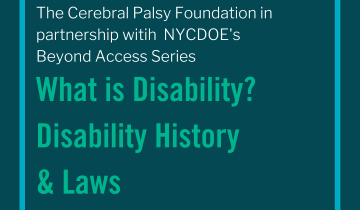
This webinar with Jacqueline Wentworth, Pediatric Occupational Therapist and individual with with CP, and Debbie Fink, Vice President of Education and Inclusion at the Cerebral Palsy Foundation, overseeing its flagship “Just Say Hi” program. This webinar aims to help parents adapt and support academic success at home.
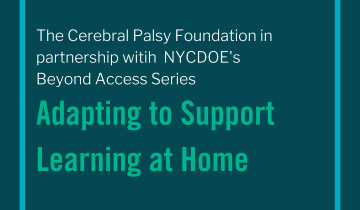
Drooling is an important problem for many individuals with CP and there are a number of interventions available to treat symptoms. If an individual with CP or their caregiver have concerns about drooling it is important to discuss with a health care provider. Care pathways such as the AACPDM pathway can be a starting point for shared decision making. In all cases, working together as a team is important in choosing the best alternative. Children and adults with CP may have trouble with drooling, or saliva management. In the medical world, drooling is referred to as sialorrhea. Saliva plays an important role in eating but also can interfere with airway clearance and breathing, as well as social participation. When drooling has this kind of impact it becomes important to consider intervention.
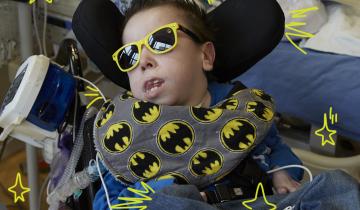
Our 3rd Virtual Town Hall featured experts from the Shirley Ryan Ability Lab and Northwestern University in Chicago. This multi-disciplinary panel discussion highlights the latest updates in care of children with #CerebralPalsy.
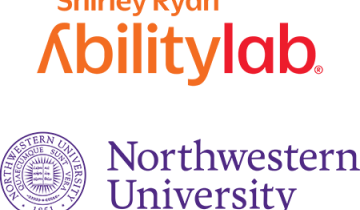
The second Virtual Town Hall featured the experts from Rady Children's Hospital, Southern Family CP Center, and UC San Diego School of Medicine in San Diego, California. This multi-disciplinary panel discussion highlights the latest updates in care of children with CerebralPalsy.

It is recommended that women start having mammography screenings starting at about the age of 40, and it becomes more difficult to obtain these services if you have a disability.
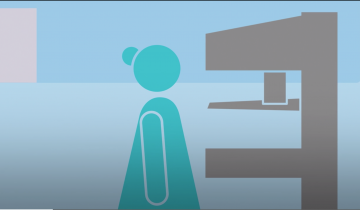
The findings of this article demonstrate the need for improved screening rates in women with CP, and highlight areas for improving their screening experience.
It's really hard just to watch someone walk to decide what's wrong with them. A better way is to do what's called Three Dimensional Gait Analysis, and that's where the child comes into one of our labs. Here, we put markers on their face, hands, and legs. We have a computer and a bunch of cameras all around the room. And then we're able to break down the gait into three dimensions.
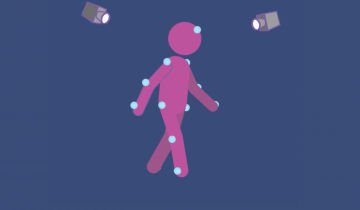
Spasticity is a condition of muscles that is a velocity resistance to stretch. What that means to a child and to a parent is that if you move the limb slowly, you have a difference than if you move that limb fast. Spasticity restricts movement and it creates a break on the system. It's as if they're trying to move, but they're held back. By treating spasticity, you may improve the range of motion or the action of the movement.
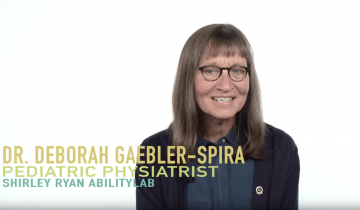
As an orthopedic surgeon I take care of children from the time they're born all the way through to adulthood . My oldest patient I have is 87 years old. As part of my practice I'm able to take care of all of their musculoskeletal problems, their problems with their bones and their joints.
